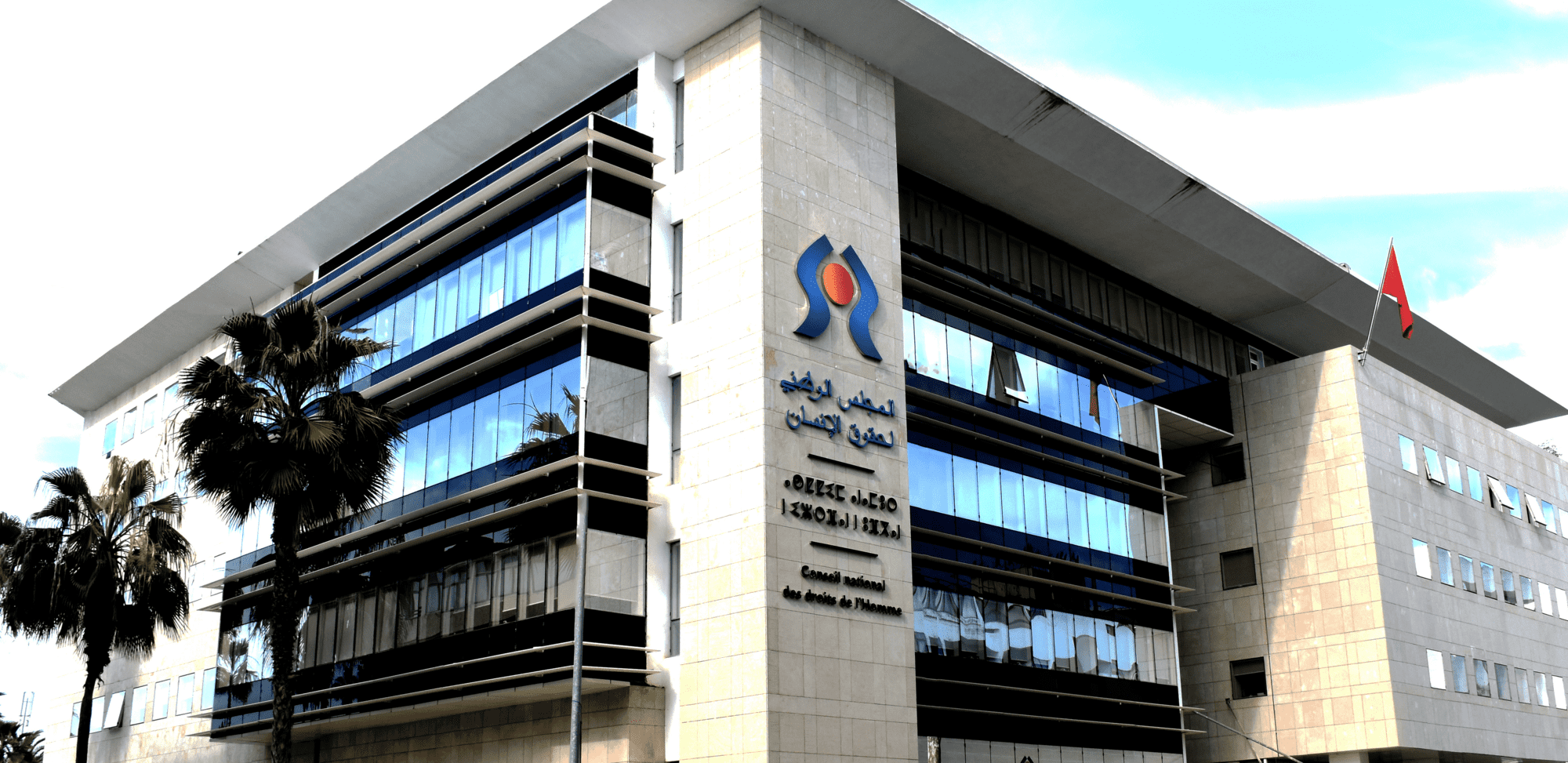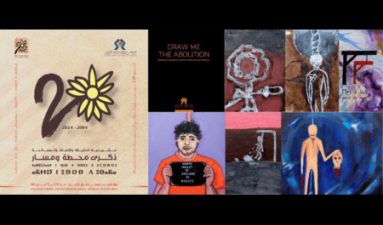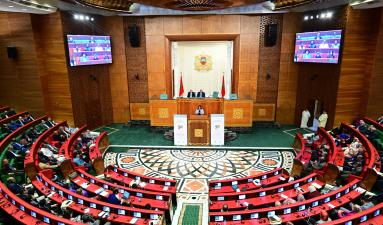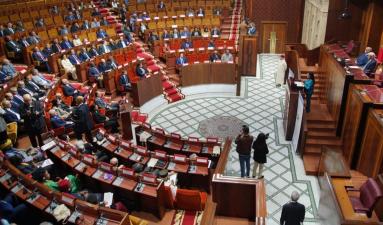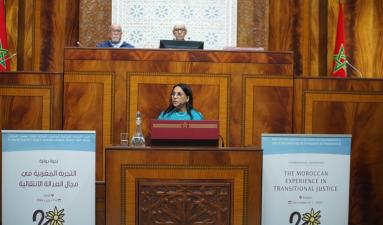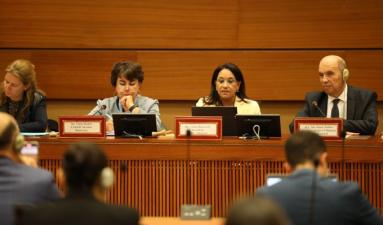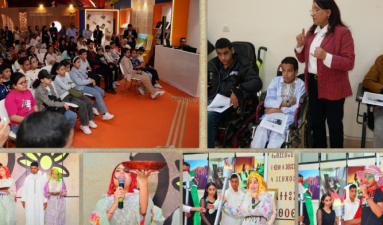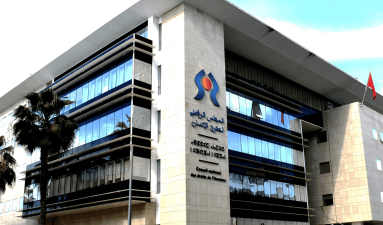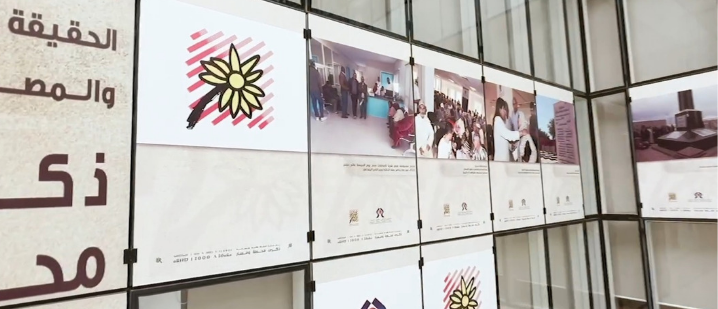
On the occasion of the twentieth anniversary of the establishment of the Equity and Reconciliation Commission in January 2004, and to commemorate this milestone in the contemporary history of Morocco, the National Human Rights Council (CNDH) is organizing, throughout the current year, events celebrating the “20 Years of Truth, Equity and Reconciliation, Commemorating a Milestone and a Journey.”
Ms. Amina Bouayach, CNDH Chairperson, launched the proceedings of this commemoration on Friday 26 January 2024, at the CNDH headquarters in Rabat, Morocco, by organizing a human rights ceremony attended by human rights and political activists who marked the human rights process in Morocco, along with ambassadors and representatives of international bodies in Morocco as well as several members of the victims’ families and rights holders.
An exhibition featuring photos and videos of the Equity and Reconciliation Commission (IER) and the Commission to follow-up on the implementation of the IER recommendations, will be open to visitors throughout the current year.
The exhibition space includes a picture chronicling the inception of IER members by His Majesty the King, on January 7, 2004, in Agadir, Morocco. This picture reflected the will of His Majesty, along with various political and human rights activists, to turn the page on the past of gross human rights violations.
The exhibited photos feature meetings of the IER members at its headquarters in Rabat, hearing sessions of victims, and their literary and intellectual productions, besides seminars and training sessions on “transitional justice” and “political detention writings.” The photos faithfully document this stage, which confirms Moroccans' reconciliation with their memory.
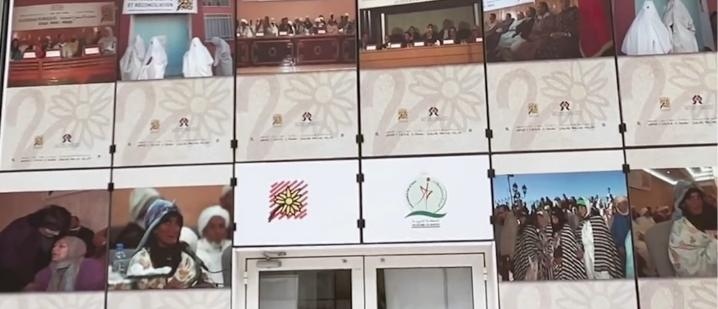
The strongest moments of this process were the public hearings, which the IER decided to organize in Rabat, Figuig, Errachidia, Khenifra, Marrakesh, and Al Hoceima, Morocco. They aim to make victims’ voices heard by all Moroccans through official television and radio channels and to turn the page on violations and prevent their recurrence.
The purpose of these sessions, encompassing both pain and hope, was to alleviate the psychological impact resulting from violations and to restore the moral dignity of the victims.
The photo of His Majesty the King’s reception at the Royal Palace in Rabat, Morocco, on 6 January 2006, for the victims’ families, marks a turning point in this process. It is also the culmination of the reconciliation process, for which the IER laid foundation over its twenty-three (23) months.
The second part of photos features the achievements of the Commission to follow up on the implementation of the IER recommendations related to revealing the truth, preserving memory, individual reparation, victims and their families receiving their arbitration decisions at the CNDH headquarters. It also documents the legal and constitutional reforms structuring the dynamics of consolidating democracy and the rule of law in Morocco.
A section of the photos exhibition was dedicated to honoring the memory of IER members who have passed away since the Commission completed its missions and submitted its final report to His Majesty the King. It includes pictures of the late Driss Benzekri, IER Chair, Mohamed Berdouzi, Mustafa Iznasni, Mohamed Mustafa Raissouni, Ibrahim Boutaleb, Ahmed Chaouki Benyoub and Abdelaziz Benzakour.
At the opening ceremony, Ms. Bouayach stated that this exhibition is certainly a very small glimpse into the process...; a process that has defined societal momentum and recalls previous achievements; a process based on a unique, even exceptional and unprecedented convergence in transitional justice experiences, between the will of a society and the will of a State that seeks fairness and justice (…).
She also added that the IER was not limited to resolving the problems of the past, but rather planted the seeds of a continuous transformation that has its own repercussions on the Moroccan political scene, upgraded collective memory and laid the foundations for a profound, structural democratic transformation.

